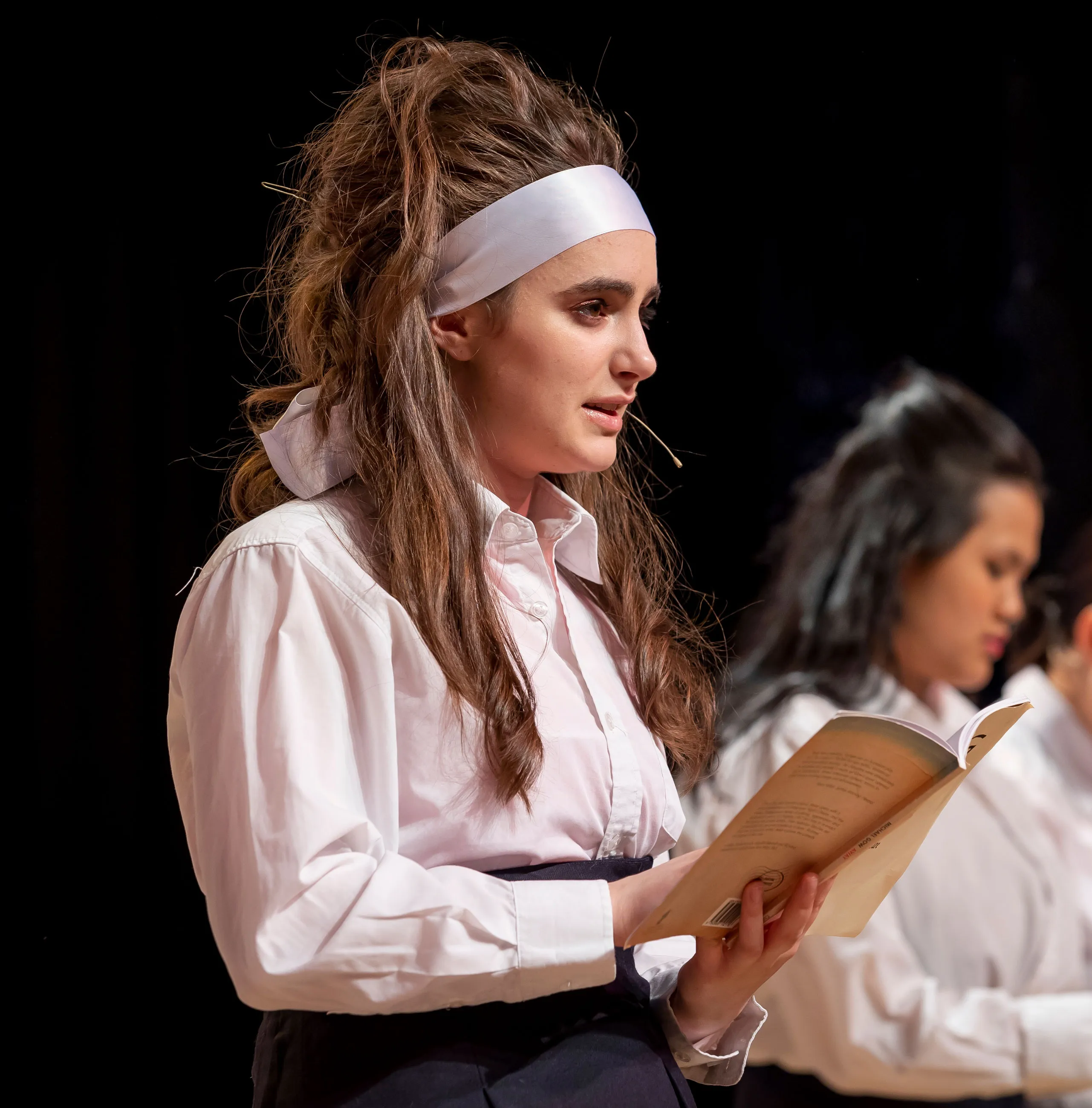

Alexandra Travers in the Senior Years production 'Away' By Michael Dow.


Alexandra Travers in the Senior Years production 'Away' By Michael Dow.
A Celebration of Creative Expression
Melbourne Girls Grammar is a school that enables Grammarians to develop with confidence and independence, setting them up for success within the red brick walls and beyond. Across the School our Arts educators work to ensure this features heavily in both the curriculum and co-curricular programs offered.
Collectively, the staff involved in the Art, Music, Drama and Dance disciplines stimulate and nurture our School culture. Through their activities, the sharing of their expertise, and their passion for the Arts, they encourage our Grammarians to tap into their creativity and, provide opportunities for self-expression and celebrate their achievements and successes. From exhibitions to high teas, on stage musical extravaganzas to dramatic and choreographed performances, the creative output of our Grammarians are displayed and celebrated by the entire School community. Melbourne Girls Grammar, like the city of Melbourne celebrates the Arts and inspires our Grammarians across all levels to take a part. Here we shine the spotlight on the diversity of our programs and the inextricable link between the creative areas of the School.

The Sounds of School Life
Head of Music Elizabeth du Blêt says Music is embedded in our MGGS’s traditions and school life. All Grammarians are connected to music in some way, whether it is in the classroom, through private music tuition or co-curricular ensembles. Elizabeth states, “Music education in our School starts from day one in the ELC and goes all the way through to the last day of Year 12.” The Music Department, which has knowledgeable and long-serving educators, provides a rich tableau of experiences they know are essential to develop musicians at all levels of accomplishment. Elizabeth says student voice is also an important part of planning ensembles and programs so our Grammarians build confidence and skills in knowing they can initiate and help design those experiences. One of the important elements is providing choice – we need to encourage students to connect with music in a way that is right for them; we provide multiple pathways to explore music, and for those who are highly proficient opportunities for them to reach their goals.
The Sounds of School Life
Head of Music Elizabeth du Blêt says Music is embedded in our MGGS’s traditions and school life. All Grammarians are connected to music in some way, whether it is in the classroom, through private music tuition or co-curricular ensembles. Elizabeth states, “Music education in our School starts from day one in the ELC and goes all the way through to the last day of Year 12.” The Music Department, which has knowledgeable and long-serving educators, provides a rich tableau of experiences they know are essential to develop musicians at all levels of accomplishment. Elizabeth says student voice is also an important part of planning ensembles and programs so our Grammarians build confidence and skills in knowing they can initiate and help design those experiences. One of the important elements is providing choice – we need to encourage students to connect with music in a way that is right for them; we provide multiple pathways to explore music, and for those who are highly proficient opportunities for them to reach their goals.
The Sounds of School Life
Head of Music Elizabeth du Blêt says Music is embedded in our MGGS’s traditions and school life. All Grammarians are connected to music in some way, whether it is in the classroom, through private music tuition or co-curricular ensembles. Elizabeth states, “Music education in our School starts from day one in the ELC and goes all the way through to the last day of Year 12.” The Music Department, which has knowledgeable and long-serving educators, provides a rich tableau of experiences they know are essential to develop musicians at all levels of accomplishment. Elizabeth says student voice is also an important part of planning ensembles and programs so our Grammarians build confidence and skills in knowing they can initiate and help design those experiences. One of the important elements is providing choice – we need to encourage students to connect with music in a way that is right for them; we provide multiple pathways to explore music, and for those who are highly proficient opportunities for them to reach their goals.


Grammarians can learn a range of instruments.



Grammarians can learn a range of instruments.


Students often perform in front of the whole School and wider community.


Music is an important part of School life at MGGS.
From the earliest age, the children in the Early Learning Centre learn the pattern and rhythm of music, they sing, learn the lyrics, impart stories, and discover cultural diversity. At Morris Hall, the students have programs designed to introduce them to choral singing, instrumental programs and the teamwork needed for orchestras and ensembles to perform in harmony. At Merton Hall, comprehensive programs continue to build these skills. Elizabeth says offering a range of pathways and options for engagement, as well as a variety of different music styles allows the educators to cater to the wide range of abilities and interests. Students start as beginners – some hope of making it a career. Others see it as an outlet or hobby. Either way we are creating an appreciation of a time honoured artform and are supporting the arts community.
Many Grammarians have gone on to have careers in the music industry. Elizabeth believes performing takes tremendous courage, working in a team or ensemble requires integrity and compassion while rehearsing calls for an enormous amount of self-discipline.
Elizabeth explains, “There's an expression in professional orchestras: ‘speak with instruments not with words’. It's by learning and performing at a range of school occasions that students are celebrating the culture of music.” In so doing, she adds, they are showing an understanding of the School’s culture, and they are sharing that culture with each other and the wider School community every time they perform.
“It's through music that they're able to express their connections to the School and each other. Music communicates beyond words. It is accessible to everyone; together we live, strengthen, and celebrate our MGGS culture.”
From the earliest age, the children in the Early Learning Centre learn the pattern and rhythm of music, they sing, learn the lyrics, impart stories, and discover cultural diversity. At Morris Hall, the students have programs designed to introduce them to choral singing, instrumental programs and the teamwork needed for orchestras and ensembles to perform in harmony. At Merton Hall, comprehensive programs continue to build these skills. Elizabeth says offering a range of pathways and options for engagement, as well as a variety of different music styles allows the educators to cater to the wide range of abilities and interests. Students start as beginners – some hope of making it a career. Others see it as an outlet or hobby. Either way we are creating an appreciation of a time honoured artform and are supporting the arts community.
Many Grammarians have gone on to have careers in the music industry. Elizabeth believes performing takes tremendous courage, working in a team or ensemble requires integrity and compassion while rehearsing calls for an enormous amount of self-discipline.
Elizabeth explains, “There's an expression in professional orchestras: ‘speak with instruments not with words’. It's by learning and performing at a range of school occasions that students are celebrating the culture of music.” In so doing, she adds, they are showing an understanding of the School’s culture, and they are sharing that culture with each other and the wider School community every time they perform.
“It's through music that they're able to express their connections to the School and each other. Music communicates beyond words. It is accessible to everyone; together we live, strengthen, and celebrate our MGGS culture.”
From the earliest age, the children in the Early Learning Centre learn the pattern and rhythm of music, they sing, learn the lyrics, impart stories, and discover cultural diversity. At Morris Hall, the students have programs designed to introduce them to choral singing, instrumental programs and the teamwork needed for orchestras and ensembles to perform in harmony. At Merton Hall, comprehensive programs continue to build these skills. Elizabeth says offering a range of pathways and options for engagement, as well as a variety of different music styles allows the educators to cater to the wide range of abilities and interests. Students start as beginners – some hope of making it a career. Others see it as an outlet or hobby. Either way we are creating an appreciation of a time honoured artform and are supporting the arts community.
Many Grammarians have gone on to have careers in the music industry. Elizabeth believes performing takes tremendous courage, working in a team or ensemble requires integrity and compassion while rehearsing calls for an enormous amount of self-discipline.
Elizabeth explains, “There's an expression in professional orchestras: ‘speak with instruments not with words’. It's by learning and performing at a range of school occasions that students are celebrating the culture of music.” In so doing, she adds, they are showing an understanding of the School’s culture, and they are sharing that culture with each other and the wider School community every time they perform.
“It's through music that they're able to express their connections to the School and each other. Music communicates beyond words. It is accessible to everyone; together we live, strengthen, and celebrate our MGGS culture.”

Celebrating the Unique
Head of Art Elaine Goodridge says that you can give Grammarians the same task when they are in a Visual Art or Design class, but every student will turn that into something unique. She adds their response is a celebration of their individuality – it speaks about them and their perceptions of the world. Providing positive feedback and subtly supporting Grammarians guides them to create finished works that are purely theirs. The Art Department at MGGS wants all Grammarians to experience a sense of achievement every time they finish a piece, which keeps them interested and engaged. Elaine says, “that every time a student takes their product home, they are sharing their learning and the pride they have in their work with others.” The creative thinking process that this work represents is extensive – invariably it has emerged from the process of trial and error and building confidence in their personal expression and style. Exhibitions, hallway displays, and social media posts enable us to share and celebrate, as a community, the creativity of our Grammarians. with the wider School community.
Celebrating the Unique
Head of Art Elaine Goodridge says that you can give Grammarians the same task when they are in a Visual Art or Design class, but every student will turn that into something unique. She adds their response is a celebration of their individuality – it speaks about them and their perceptions of the world. Providing positive feedback and subtly supporting Grammarians guides them to create finished works that are purely theirs. The Art Department at MGGS wants all Grammarians to experience a sense of achievement every time they finish a piece, which keeps them interested and engaged. Elaine says, “that every time a student takes their product home, they are sharing their learning and the pride they have in their work with others.” The creative thinking process that this work represents is extensive – invariably it has emerged from the process of trial and error and building confidence in their personal expression and style. Exhibitions, hallway displays, and social media posts enable us to share and celebrate, as a community, the creativity of our Grammarians. with the wider School community.
Celebrating the Unique
Head of Art Elaine Goodridge says that you can give Grammarians the same task when they are in a Visual Art or Design class, but every student will turn that into something unique. She adds their response is a celebration of their individuality – it speaks about them and their perceptions of the world. Providing positive feedback and subtly supporting Grammarians guides them to create finished works that are purely theirs. The Art Department at MGGS wants all Grammarians to experience a sense of achievement every time they finish a piece, which keeps them interested and engaged. Elaine says, “that every time a student takes their product home, they are sharing their learning and the pride they have in their work with others.” The creative thinking process that this work represents is extensive – invariably it has emerged from the process of trial and error and building confidence in their personal expression and style. Exhibitions, hallway displays, and social media posts enable us to share and celebrate, as a community, the creativity of our Grammarians. with the wider School community.

While we teach skills, the educators at MGGS see creativity holistically. The interpretation of the world through artmaking is enabling the artist to see that world through a personal lens. If I was seeing the same work within a class, I would know I am doing something wrong. If I see work that is all like my work, I'm failing as an educator.”
While we teach skills, the educators at MGGS see creativity holistically. The interpretation of the world through artmaking is enabling the artist to see that world through a personal lens. If I was seeing the same work within a class, I would know I am doing something wrong. If I see work that is all like my work, I'm failing as an educator.”


Student work is often displayed in and outside the classroom.



Student work is often displayed in and outside the classroom.


Grammarians have access to technology to take their creativity to another level.
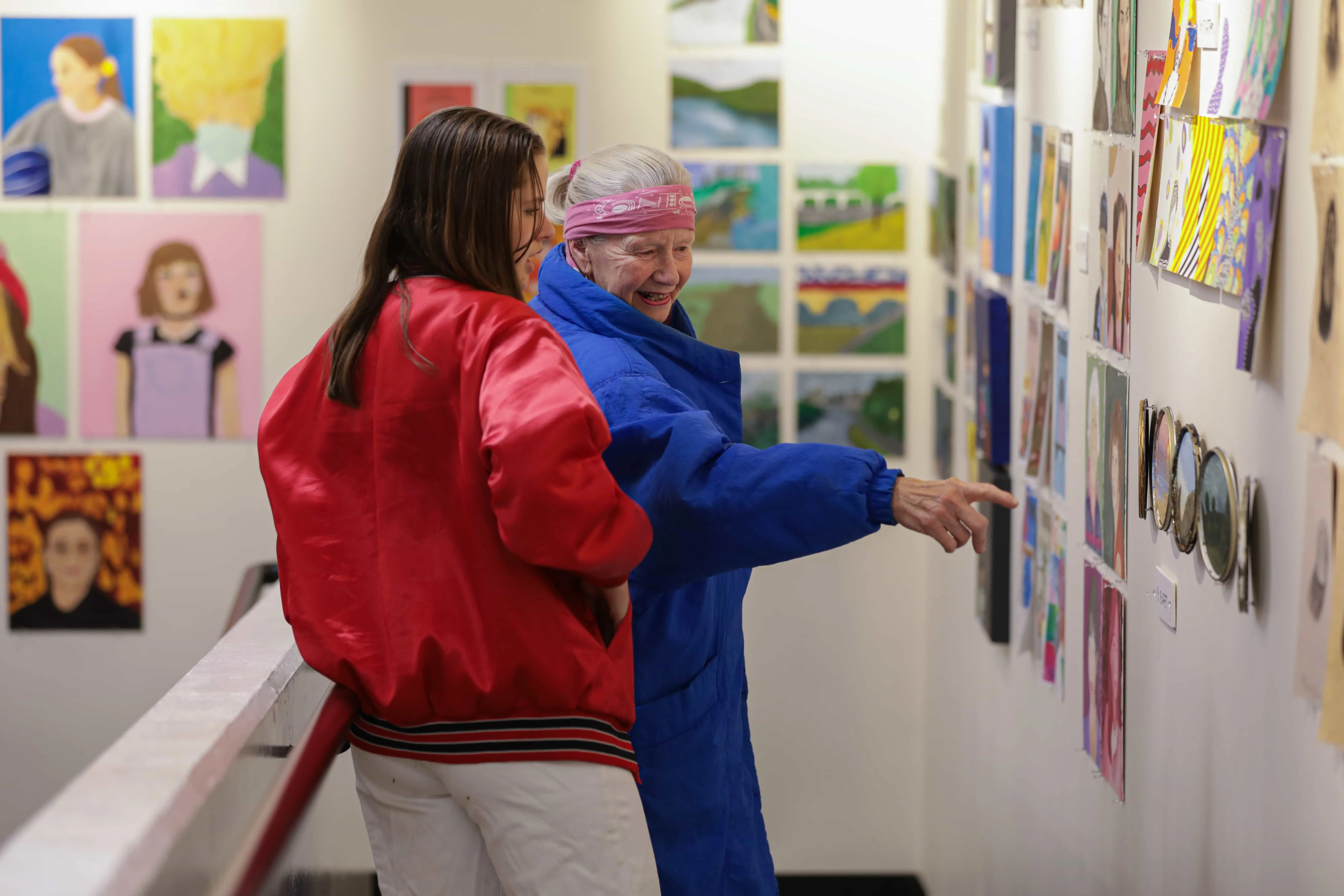

Exhibitions show our Grammarians work to the whole School community.


The Dark Arts event brings together Music, Art and Drama.


Student work is often displayed in and outside the classroom.


Grammarians have access to technology to take their creativity to another level.


Exhibitions show our Grammarians work to the whole School community.


The Dark Arts event brings together Music, Art and Drama.
The Art Department focuses on creative growth and expression to discover what is unique and special about each child. Elaine says the teachers try to provide a context and an opportunity for the students to express themselves and feel safe and confident to do so. She adds that working in a supportive environment - both from teachers and peers – is important to helping students develop independently. In an age of hyper-connectedness and social media, Elaine says Art can act as an antidote. She says if our Grammarians learn how to express themselves and feel confident in what they are expressing and their visions of the world, it helps them beyond the red brick walls. Through Art, our Grammarians are working out their place in the world, interrelating with people and building a sense of self.
The Art Department focuses on creative growth and expression to discover what is unique and special about each child. Elaine says the teachers try to provide a context and an opportunity for the students to express themselves and feel safe and confident to do so. She adds that working in a supportive environment - both from teachers and peers – is important to helping students develop independently. In an age of hyper-connectedness and social media, Elaine says Art can act as an antidote. She says if our Grammarians learn how to express themselves and feel confident in what they are expressing and their visions of the world, it helps them beyond the red brick walls. Through Art, our Grammarians are working out their place in the world, interrelating with people and building a sense of self.
The Art Department focuses on creative growth and expression to discover what is unique and special about each child. Elaine says the teachers try to provide a context and an opportunity for the students to express themselves and feel safe and confident to do so. She adds that working in a supportive environment - both from teachers and peers – is important to helping students develop independently. In an age of hyper-connectedness and social media, Elaine says Art can act as an antidote. She says if our Grammarians learn how to express themselves and feel confident in what they are expressing and their visions of the world, it helps them beyond the red brick walls. Through Art, our Grammarians are working out their place in the world, interrelating with people and building a sense of self.

Setting the Stage
The Drama Department is passionate about creative students who thrive as performers, but it values all students getting involved and feeling safe as part of the “Drama family”. Head of Drama Victoria Page says they aim to give students a safe space where they know they belong, and their teachers and peers care. The positive space helps ensure our Grammarians are liberated through drama and are given the freedom to express themselves through language, character and movement. Victora says helping students to feel confident to express themselves means their ideas are strong; their creative voice is heard. Educators have the flexibility to change or shape the curriculum in response to how the students want to express themselves, their unique interests or ideas they are passionate about. You can see the uninhibited movement and performance of our younger Grammarians and how this evolves through the acquisition of language skills, increased confidence in reading and interpretation of text and the complexity of ideas embedded in both traditional and formal dramatic scripts.
“We feel that creating a curriculum that allows our Grammarians to express their complex and contemporary views that they are living with – topics like LGBTQIA+ rights, climate change and sustainability – allows them to feel more engaged and passionate.” - Victoria Page
Setting the Stage
The Drama Department is passionate about creative students who thrive as performers, but it values all students getting involved and feeling safe as part of the “Drama family”. Head of Drama Victoria Page says they aim to give students a safe space where they know they belong, and their teachers and peers care. The positive space helps ensure our Grammarians are liberated through drama and are given the freedom to express themselves through language, character and movement. Victora says helping students to feel confident to express themselves means their ideas are strong; their creative voice is heard. Educators have the flexibility to change or shape the curriculum in response to how the students want to express themselves, their unique interests or ideas they are passionate about. You can see the uninhibited movement and performance of our younger Grammarians and how this evolves through the acquisition of language skills, increased confidence in reading and interpretation of text and the complexity of ideas embedded in both traditional and formal dramatic scripts.
“We feel that creating a curriculum that allows our Grammarians to express their complex and contemporary views that they are living with – topics like LGBTQIA+ rights, climate change and sustainability – allows them to feel more engaged and passionate.” - Victoria Page
Setting the Stage
The Drama Department is passionate about creative students who thrive as performers, but it values all students getting involved and feeling safe as part of the “Drama family”. Head of Drama Victoria Page says they aim to give students a safe space where they know they belong, and their teachers and peers care. The positive space helps ensure our Grammarians are liberated through drama and are given the freedom to express themselves through language, character and movement. Victora says helping students to feel confident to express themselves means their ideas are strong; their creative voice is heard. Educators have the flexibility to change or shape the curriculum in response to how the students want to express themselves, their unique interests or ideas they are passionate about. You can see the uninhibited movement and performance of our younger Grammarians and how this evolves through the acquisition of language skills, increased confidence in reading and interpretation of text and the complexity of ideas embedded in both traditional and formal dramatic scripts.
“We feel that creating a curriculum that allows our Grammarians to express their complex and contemporary views that they are living with – topics like LGBTQIA+ rights, climate change and sustainability – allows them to feel more engaged and passionate.” - Victoria Page


Our Grammarians take pride in their performances.



Our Grammarians take pride in their performances.


Our Middle Years students are perfoming The Wizard of Oz in 2021.


House Drama is always a highly-anticipated event.


Our Grammarians take pride in their performances.


Our Middle Years students are perfoming The Wizard of Oz in 2021.


House Drama is always a highly-anticipated event.
As the students mature, accountability is learned. This is vital, and Victoria says it comes from understanding the true meaning of collaboration – everyone having a role and a shared responsibility in the final product is what can take a performance from good to great. At Merton Hall, the Drama staff set clear expectations and create a positive community that allows everyone to thrive. Victoria is thankful for the meaningful and positive contribution of former Grammarians; she says they have helped the culture emerge, build and flourish. Grammarians feel a real sense of achievement from the work they undertake; this investment is essential to build a sustained drama culture as well. Victoria feels that comes from valuing the process needed to create a piece of theatre. She hopes the final product is a treat for them because it is something they have worked hard to pull together.
Victoria adds that learning in Arts subjects at MGGS is about developing soft and transferable skills. Collaborating with others, doing research to be informed and listening to others allows our Grammarians to develop a sense of self – to find their ‘voice’. Engaging in performance, expands the realm of possibility from real and imagined to worlds where you can transport an audience to think outside their comfort zones. Unpacking ideas, themes, cultures and societies builds an awareness that is beyond self. “It's how we encourage our students to be globally-minded.”
As the students mature, accountability is learned. This is vital, and Victoria says it comes from understanding the true meaning of collaboration – everyone having a role and a shared responsibility in the final product is what can take a performance from good to great. At Merton Hall, the Drama staff set clear expectations and create a positive community that allows everyone to thrive. Victoria is thankful for the meaningful and positive contribution of former Grammarians; she says they have helped the culture emerge, build and flourish. Grammarians feel a real sense of achievement from the work they undertake; this investment is essential to build a sustained drama culture as well. Victoria feels that comes from valuing the process needed to create a piece of theatre. She hopes the final product is a treat for them because it is something they have worked hard to pull together.
Victoria adds that learning in Arts subjects at MGGS is about developing soft and transferable skills. Collaborating with others, doing research to be informed and listening to others allows our Grammarians to develop a sense of self – to find their ‘voice’. Engaging in performance, expands the realm of possibility from real and imagined to worlds where you can transport an audience to think outside their comfort zones. Unpacking ideas, themes, cultures and societies builds an awareness that is beyond self. “It's how we encourage our students to be globally-minded.”
As the students mature, accountability is learned. This is vital, and Victoria says it comes from understanding the true meaning of collaboration – everyone having a role and a shared responsibility in the final product is what can take a performance from good to great. At Merton Hall, the Drama staff set clear expectations and create a positive community that allows everyone to thrive. Victoria is thankful for the meaningful and positive contribution of former Grammarians; she says they have helped the culture emerge, build and flourish. Grammarians feel a real sense of achievement from the work they undertake; this investment is essential to build a sustained drama culture as well. Victoria feels that comes from valuing the process needed to create a piece of theatre. She hopes the final product is a treat for them because it is something they have worked hard to pull together.
Victoria adds that learning in Arts subjects at MGGS is about developing soft and transferable skills. Collaborating with others, doing research to be informed and listening to others allows our Grammarians to develop a sense of self – to find their ‘voice’. Engaging in performance, expands the realm of possibility from real and imagined to worlds where you can transport an audience to think outside their comfort zones. Unpacking ideas, themes, cultures and societies builds an awareness that is beyond self. “It's how we encourage our students to be globally-minded.”
Our Grammarians take pride in their performances.










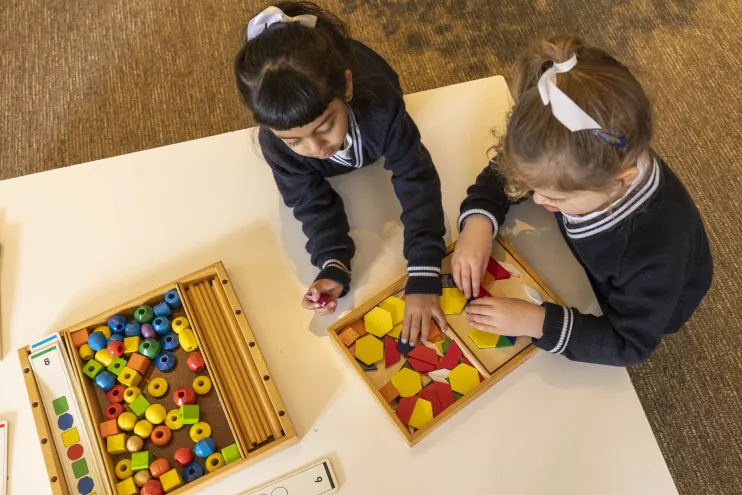
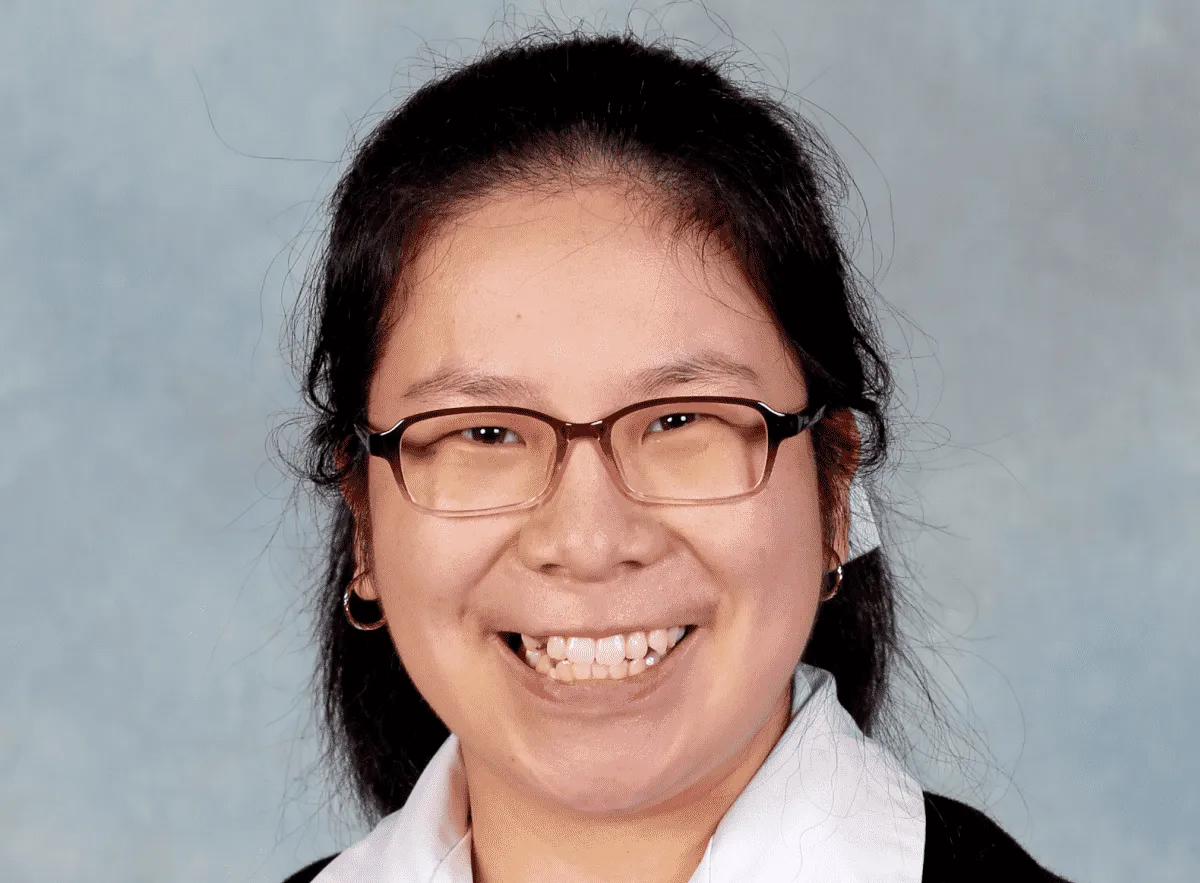
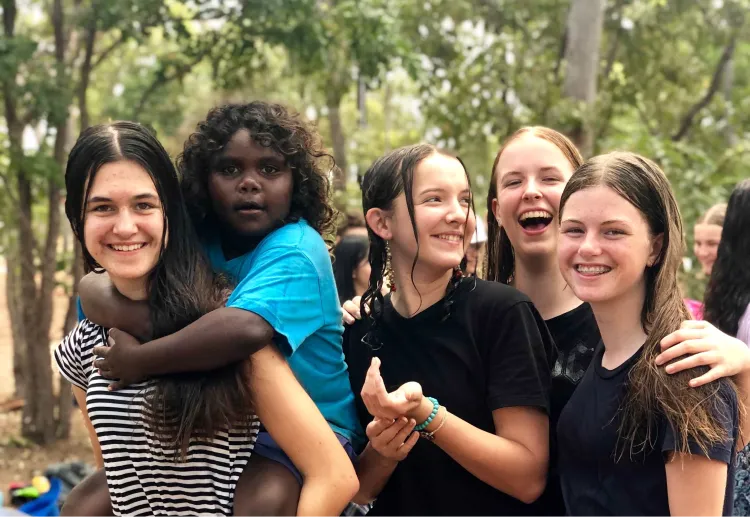
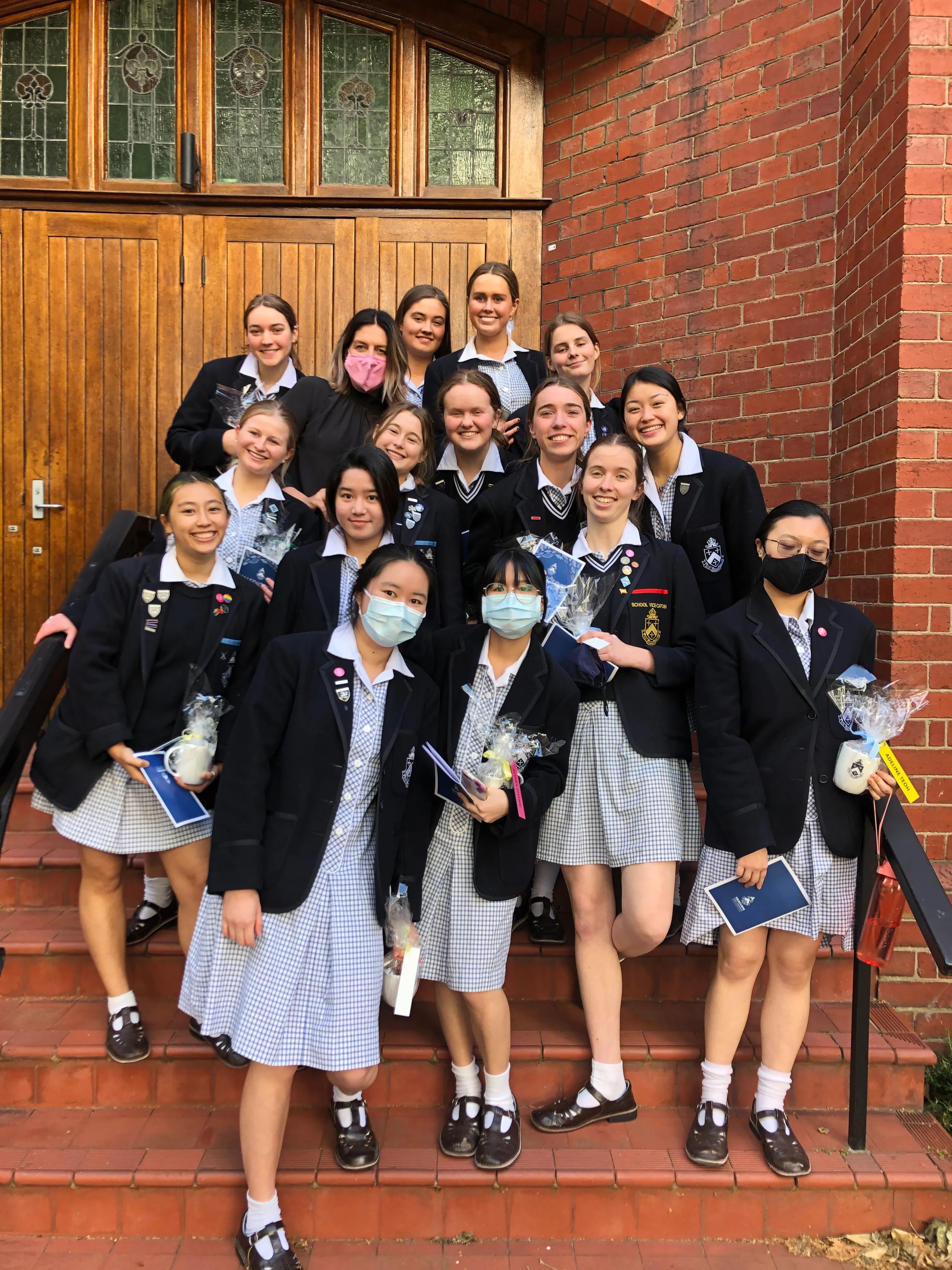


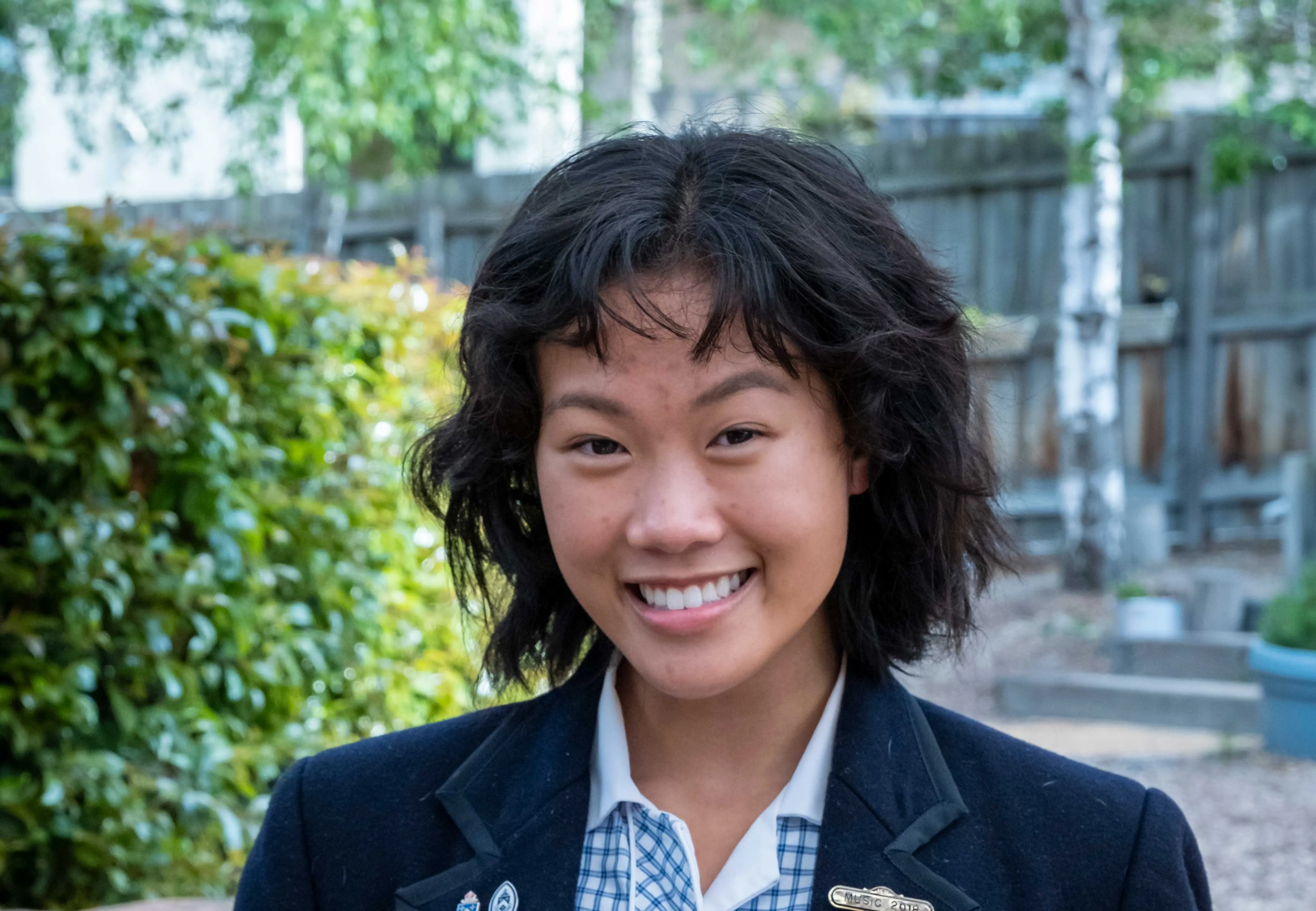
_crop.webp)


